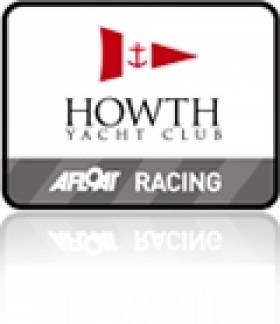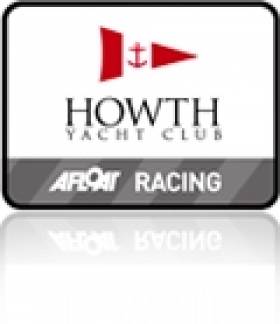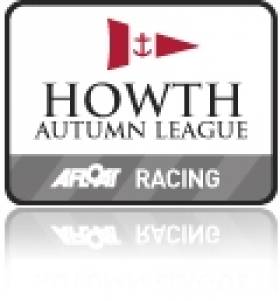Displaying items by tag: Laser Frostbite
Competitive Laser Frostbite series at Howth reaches half-way stage
#LASER–With the first series of the Howth Yacht Club Laser Frostbites reaching the half-way stage, Ronan Cull, who currently tops the National rankings, has a clear lead overall. The 52-boat fleet racing this year has a wide range of age groups and standards. There are 11 different clubs represented, with sailors from as far as Wexford and Cork travelling to Howth each Sunday to compete.
The first set of races in mid-November saw perfect conditions with 10-12kts and a flat sea. They were dominated by Masters Sailors with the young hot-shots having to play second fiddle to some former international sailors. It was National Yacht Club sailor Evan Dolan who started best, winning the first race with some impressive upwind speed in the tricky chop. Olympic Team Manager James O’Callaghan won the second race of the day, with Dolan giving the committee boat a nice display of downwind capsizing technique on the final run to slip from second to seventh. Murrough Kavanagh, better known for Mirror and Laser 2 exploits, made a welcome return to dinghy sailing by dominating the Radial Fleet on the first day with 2 bullets.
The second weekend saw continued mild conditions with moderate breezes and high temperatures for November. Wexford’s Ronan Wallace, 2010 National Champion, won the first race with the consistent Ronan Cull again claiming second spot from Conor Greagsby of the National Yacht Club in third. Cull finally got his race win in the second race, with Colm Cunningham pushing him hard for the entire race. Ciaran Costello and Murrough Kavanagh shared race wins in the Radial Fleet.
The third set of races on 27th November saw a return to the wet and windy conditions expected for a Laser Frostbites. HYC Class Captain David Quinn won the first race of the day in 23kts, but only after Ronan Cull had unfortunate tangles at the last weather and leeward marks. Cull further extended his overall lead by finishing second, with Evan Dolan a close third. Cull then went on to win the second race easily while Dolan gained places on the last leg to finish second again. Alex Shackleton of Malahide Yacht Club won both Radial races.
At the half-way stage, Ronan Cull leads by a big margin with 8 points. David Quinn and James O’Callaghan are tied in second place with 23 points, although James is heading to Perth this week to work at the ISAF Worlds so will miss the rest of the series. Once the second discard is applied, Evan Dolan and Ronan Wallace will both move up the rankings from their current positions and the hotly-contested ‘First Master’ prize is still up for grabs, while Alex Shackleton heads the Radial fleet overall.
Howth Yacht Club's 37th Laser Frostbite starts in November
One of Ireland’s longest running dinghy frostbite series begins its 37th running on Sunday 6th November when Howth Yacht Club’s Laser Frostbite gets underway.
The Frostbite, which began in 1974, comprises a pre-Christmas and post-New Year series (starting January 8th), a New Year’s Day Race (to blow away the festive cobwebs) and finishing with the traditional Round the Island Race and prize-giving on March 11th.
First gun each day is 11.00am, with two short races of approximately 35 minutes duration. Courses are dedicated solely to the Laser Class with our own committee boat and support crews in the sheltered waters just to the West of Howth Harbour.
The end-of-series race round the island will also coincide with an ‘Inter-Club Masters’ Challenge’, introduced very successfully last year and which attracted sailors from Dun Laoghaire and Ballyholme.
The emphasis is on fun and camaraderie, with all standards welcomed. Former winners include Philip Watson and Gordon Maguire and standards are still high at the front of the fleet, with current No.1-ranked Laser sailor in Ireland, Ronan Cull, racing again this year.
The series has become famous for its welcome, with senior sailors always willing to coach and encourage newcomers, both ashore and on the water, and there is always lively banter in the bar afterwards.
Notice of Race and Online Entry are available on www.hyc.ie and there is a Facebook page for the event (Howth Laser Frostbites).


























































